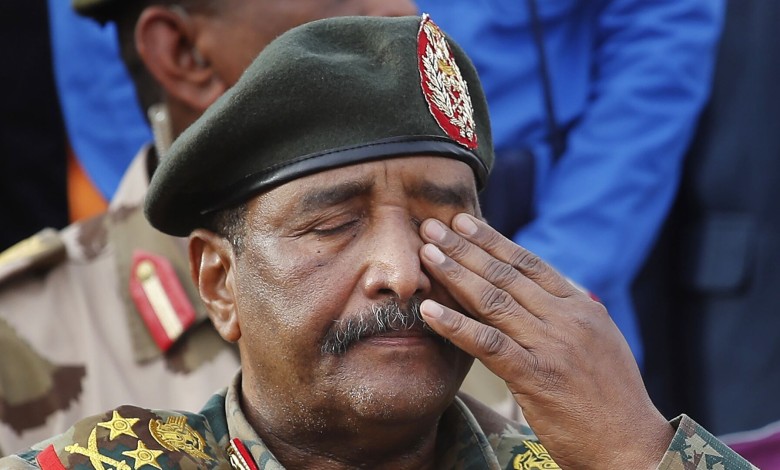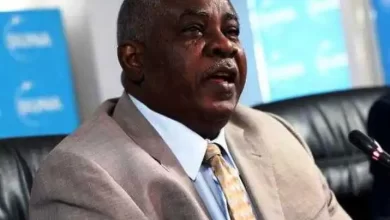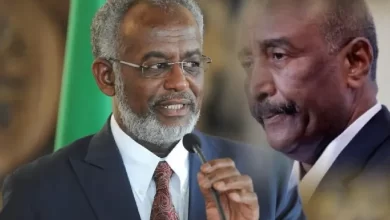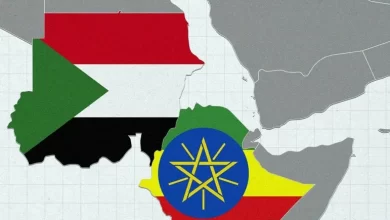Legal experts confirm the illegality of the proof
decision to cancel the Rapid Support Law

Al-Burhan’s decisions, issued on Wednesday evening, to dissolve the Rapid Support forces and cancel his law provoked wide reactions, as the Rapid Support forces declared their illegality, while the opinions of legal experts on the matter differed. Abdel Rahim Daglo, the commander of the Second Rapid Support forces, in press statements, downplayed the importance of Al-Burhan’s decisions and called them illegal. At the same time, he ruled out their withdrawal from the Jeddah platform, and said that the Rapid Support still controls the command perimeter. He confirmed that the Rapid Support forces are being supplied with weapons from Army stores that they seized earlier. For his part, the political adviser to the commander of the Rapid Support forces, Youssef Ezzat, said that Burhan does not have the legitimate authority to disband our forces and that the decision will not affect us politically and militarily. Lawyer Nabil Adib said that the cancellation of the rapid support law requires legislative action and not a constitutional decree, but at the same time, in an interview with Radio Dabanga, he stressed that the law no longer has an impact on the legal reality, because the Rapid Support forces that are subject to its provisions were disbanded last April, and no longer exist in terms of the law. He explained that the decision to disband the Rapid Support Forces was issued by the commander-in-chief of the Armed Forces last April, a decision issued in accordance with his legal and constitutional authorities. He added that the Rapid Support forces were originally established as a combat force belonging to the security service, but were subordinate to the armed forces under its law issued in ٢٠١٧ indicating that article ٣٥ of the constitutional document stated that they belong to the commander-in-chief of the Armed Forces. As for the practical reality, lawyer Nabil Adib said that the Rapid Support forces are subject to the law of war and neutrality as regulated by international humanitarian law as a splinter force in accordance with the Fourth Geneva Convention, and therefore, despite its dissolution, it remains obliged to practice acts of war only within the framework accepted by the international rules of war, which define acts of violence in the face of combatants and not to use them in the face of protected persons. Downplaying the importance of legal ceremony Lawyer and legal expert Saleh Mahmoud downplayed the legal significance of the decrees issued by Burhan dissolving the Rapid Support forces and canceling his law, and said that they do not have any constitutional force. In an interview with Radio Dabanga, he said that Burhan does not have any right to issue such decisions because he has lost the necessary legitimacy. As for the impact of decisions on the Rapid Support forces, he ruled out their impact on them decisively, indicating that rapid support has huge financial resources and cross-border. He stressed that Al-Burhan is not qualified to achieve justice or talk about the crimes of others because he committed similar crimes. Maher Abu al-jokh, a political analyst and a member of the Central Council for freedom and change, said that Al-Burhan’s decisions to dissolve the Rapid Support and cancel his law are of a political nature and not legal, pointing to previous decisions issued immediately after the outbreak of the war to dissolve the Rapid Support forces and end the assignment of his officers and freeze his funds. He said, in an interview with Radio Dabanga, that the coincidence of the proof decisions with the US sanctions in the face of commanders from the Rapid Support is an attempt to indicate the commitment, but he denied this and said that the methodology of the American decisions is to equalize the sanctions between the two parties, pointing to the expectations of issuing individual sanctions against army commanders, warning that the sanctions decision is of an individual nature. He ruled out the impact of the demonstration decisions on the ongoing military operations. But he pointed to two hypotheses, the first is that the decisions are an attempt to disrupt the Jeddah platform, stressing at the same time that there is no choice but to resume negotiations and there is no room for not recognizing the quick support due to the signing of an agreement earlier. He pointed to the Kenyan President’s recent statement about receiving a call from Burhan, during which he withdrew his reservations about Kenya’s chairmanship of the IGAD Quartet Committee. He said that Al-Burhan’s decisions are also aimed at achieving a balance within the camp supporting the army. Source: Radio Dabanga





